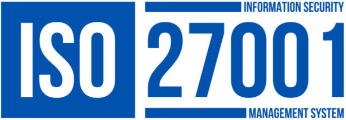CITY AM published The strengths that will undo the very best of leaders: Overplaying the things you’re best at can end in disaster
It seems obvious that leaders must understand and play to their strengths – those qualities that energise them and enable them to do their best work – to effectively lead their teams to success. However, research shows that leaders often fail, not because they are weak in particular areas, but because they are using their strengths incorrectly and do not fully understand the situation they are in, or the people they are interacting with.
While most individuals spend the majority of their development time trying to improve weaker areas, these are rarely the biggest source of performance risk. Relying too much on particular strengths, or using them in the wrong way, can undermine peak performance and, in some cases, derail a leader’s career.
INDIVIDUAL OVERDRIVE
These “overdone strengths” refer to skills that are used in the wrong way, or at the wrong time. For example, it is vital that managers are energised when leading a group, but a leader in overdrive will appear domineering, and overly direct and opinionated. An individual’s desire to move people towards a common goal can override the need to consult with other team members, and this can ultimately negatively impact results.
The decisive natures common to those in leadership roles usually means that complex problems can be resolved quickly and efficiently. However, if decision-making is not applied with care, leaders can make snap judgements – such as simply bringing in the people closest to a given problem to assist them – without considering the bigger picture.
This will undermine decision quality, and damage trust between colleagues and other stakeholders. Think about Prime Ministers Margaret Thatcher and Gordon Brown – both leaders who were accused several times over of making this mistake.
TEAM OVERDRIVE
Overdone strengths don’t just cause problems when leaders use their skills ineffectively. They also occur when leadership teams have dominant strengths that are used inappropriately, and negatively impact the company’s performance as a whole. If the leadership team is too strongly execution and results-focused, for instance, it is likely to sequester emotional intelligence and hinder trusting relationships with employees and customers. When this filters down to lower levels in the organisation, it can adversely impact the quality of customer experiences, and the firm’s ability to attract and retain high-quality talent.
REDUCING OVERDRIVE
- There are a number of methods to help leaders understand how they can use their strengths more effectively, including:
- Building awareness of the overdrive risk and the triggers that can cause it, including factors such as stress, and perceived violation of a person’s values and long-established habits.
- Helping those who are in leadership roles to find specific actions to minimise how full-on they are in situations where they are prone to going into overdrive.
- Providing feedback and encouraging new habits to ensure behaviour change is sustained.
- Developing support networks between leaders with complementary strengths, who can provide each other with feedback on how to use strengths in more effective and powerful ways.
- For leaders to achieve sustained high performance, they need to think beyond addressing weak areas. It is vital that leaders and managers learn to use their strengths with caution and care, ensuring that they are conscious of how they apply them.







